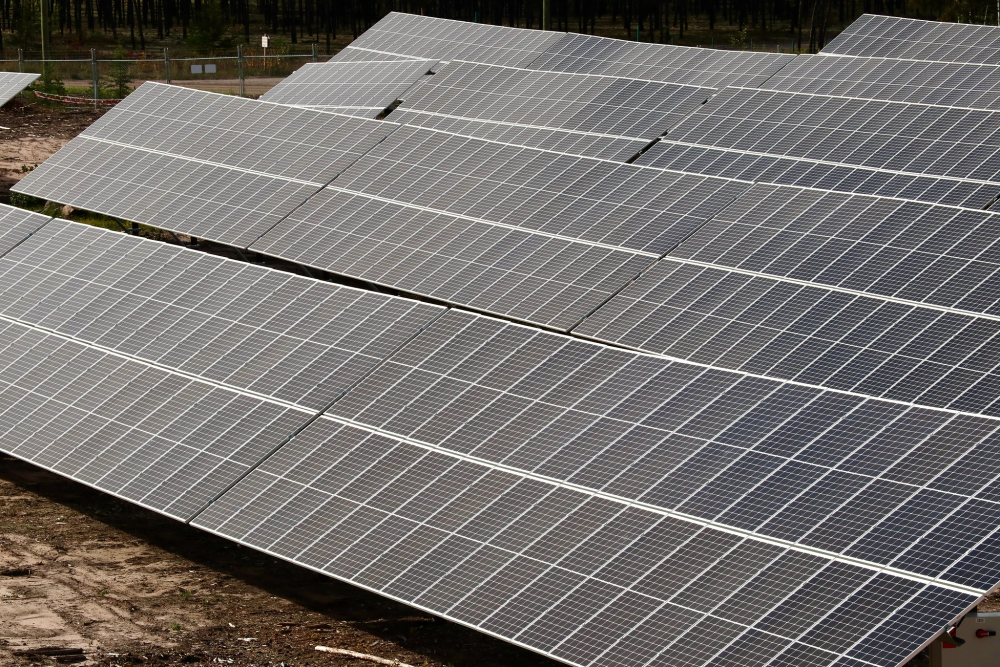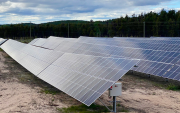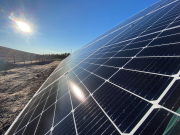This is the third publication in Climate and energy policy advancements: Eliminating diesel in Canada’s remote communities, a series providing insights, details and analysis of each of the specific policies we are advocating for under our Renewables in Remote Communities (RiRC) program and the Indigenous Off-diesel Initiative (IODI).
 A power purchase agreement (PPA) is a long-term contractual agreement between energy sellers and buyers (who are usually electric utilities). Both parties agree that a pre-established amount of energy will be purchased from an electricity generation facility (one that is either renewable or fossil-fuel based) over a long period of time, typically from 20 to 30 years, with a set escalation (or de-escalation) rate written into the contract. This type of contractual framework increases the certainty of cash-flow and revenue for renewable-energy project developers. It defines the forecasted energy and revenue generation of a renewable energy asset and can help the electricity generators gain access to capital (often through debt financing) to develop a project. The inability to obtain capital is often a barrier to the uptake of renewable energy in remote communities.
A power purchase agreement (PPA) is a long-term contractual agreement between energy sellers and buyers (who are usually electric utilities). Both parties agree that a pre-established amount of energy will be purchased from an electricity generation facility (one that is either renewable or fossil-fuel based) over a long period of time, typically from 20 to 30 years, with a set escalation (or de-escalation) rate written into the contract. This type of contractual framework increases the certainty of cash-flow and revenue for renewable-energy project developers. It defines the forecasted energy and revenue generation of a renewable energy asset and can help the electricity generators gain access to capital (often through debt financing) to develop a project. The inability to obtain capital is often a barrier to the uptake of renewable energy in remote communities.
A well-designed independent power producer (IPP) policy with a fair and equitable PPA rate promotes the adoption of locally led renewable energy projects in remote communities. Notably, the two overarching conditions for a fair and equitable energy price are:
- Capturing the full costs of building and operating a diesel-based energy system and using this information to set a more accurate PPA rate structure for renewable-energy projects that acknowledges the benefits of generating electricity from renewables as opposed to diesel;
- Diversifying energy developers so that energy generated in remote communities is not provided predominantly by Crown electric utilities. This diversification of energy supply away from utility-led to community- and Indigenous-led electricity generation is a fundamental condition for accelerating energy transition, energy justice, and economic reconciliation with Indigenous people.
Designing the PPA rate structure
 The standard approach in setting the starting PPA rate for remote renewable-energy projects involves determining the marginal cost of producing energy from diesel-based energy systems. This consists primarily of the cost of diesel fuel plus the associated transportation costs and other applicable taxes. Our True Cost of Energy backgrounder provides a framework of these terms (marginal, avoided, and true cost) to assist with the negotiation of PPA rates for renewable-based energy systems. For example, in our recommendations to improve policy around the Qulliq Energy Corporation’s (QEC) commercial institutional power production (CIPP) application, we suggest that a fair PPA price for projects in Nunavut should recognize the savings achieved from lower operational and maintenance costs and unspent diesel subsidies, as well as the additional value (“adders”) for Inuit-owned energy projects in remote communities. One of our key recommendations is to increase the suggested PPA price set by the QEC by a minimum of 60%. To date, there have not been any announcements on the CIPP policy and whether more equitable PPA rates will be offered. This is an indication of the continued work required to document and analyze the savings that should be reflected in the PPA rates of renewable energy projects.
The standard approach in setting the starting PPA rate for remote renewable-energy projects involves determining the marginal cost of producing energy from diesel-based energy systems. This consists primarily of the cost of diesel fuel plus the associated transportation costs and other applicable taxes. Our True Cost of Energy backgrounder provides a framework of these terms (marginal, avoided, and true cost) to assist with the negotiation of PPA rates for renewable-based energy systems. For example, in our recommendations to improve policy around the Qulliq Energy Corporation’s (QEC) commercial institutional power production (CIPP) application, we suggest that a fair PPA price for projects in Nunavut should recognize the savings achieved from lower operational and maintenance costs and unspent diesel subsidies, as well as the additional value (“adders”) for Inuit-owned energy projects in remote communities. One of our key recommendations is to increase the suggested PPA price set by the QEC by a minimum of 60%. To date, there have not been any announcements on the CIPP policy and whether more equitable PPA rates will be offered. This is an indication of the continued work required to document and analyze the savings that should be reflected in the PPA rates of renewable energy projects.
Understanding that the web of diesel subsidies cumulatively results in a reduction in the price of energy in remote communities is also critical to the design of a fair and equitable PPA rate. These complex subsidies help to mask the true cost of diesel-generated electricity. An increased understanding of the types and functions of diesel subsidies could lead to a reallocation of this money, which could justify higher PPA rates for renewable energy projects and/or allow for the reallocation of funding that Indigenous communities could put to other uses. To support fairer and more equitable PPA rates, the Pembina Institute is creating a diesel subsidies backgrounder that makes clear the true cost of energy in remote communities, provides a framework of terms to improve the understanding of diesel energy subsidies, and explains the different types, levels, and functions of subsidies in an effort to support the advancement of renewable energy projects.
Radical policy transformation
The structure, content, and pricing of energy in PPA contracts should promote the transition to low-carbon energy systems in remote communities and a shift to local economies in which the development of community-led renewable energy projects is a priority. We recognize the technical, economic, and regulatory complexities of advancing a fair and equitable energy price for remote communities. For that reason, some of our upcoming research will focus on re-envisioning both diesel subsidies and the remote utility business model, and will look at the regulatory considerations and policies necessary to support a transformation. Further, the environmental, social, and cultural impacts of rapid and ongoing climate change that is especially pronounced in northern remote communities, need to be brought into the overall decision-making process. Robust and more forward-looking policy actions are needed, including:
- Increased federal-government programs and policies to incentivize renewable energy projects with a PPA in remote communities. Specifically, the production-incentive programs of the previous federal government (like the Wind Power Production Incentive and the ecoENERGY for Renewable Power) should be explored and adapted to remote communities. When they were in effect, they were instrumental in increasing renewable energy sectors and project development in grid-tied applications. Until utilities and the regulations that govern them are updated to offer more fair and equitable PPA rates, the federal government should consider the creation of production incentives to top up PPA rates and unlock necessary capital to advance projects. A robust policy of this sort would support the federal government’s ambitious target of shifting fossil fuel-based Indigenous communities to clean, reliable energy by 2030. Increasing PPA rates through a combination of policies will assist the long-term goal of phasing out diesel in remote communities.
- Mirror the trading-mechanism system for Renewable Energy Certificates (RECs) that currently exists in grid-tied communities. Policy makers should explore full implementation of renewable portfolio standards (RPS) in remote communities, requiring utilities to generate a portion of their power from renewable-energy assets. Under this system, the utilities are issued RECs when they buy renewable energy through PPA contracts which helps to increase the price offered in the PPA. Ultimately, the trading mechanism behind RPS/RECs pushes utilities to sign more PPAs with renewable-energy proponents. More research is needed to help remote communities capitalize on the aggregation/selling of RECs.
- Recognize the incremental savings and benefits from renewable energy projects. Transparency, data collection and analysis is all needed to fully recognize the savings and benefits that can be achieved from renewable energy systems. Policy makers need to adopt a framework to value the full costs of generating electricity from diesel against the cost of generating it from renewables, and use this information when they design PPA pricing structures for renewable energy projects. In particular, we recommend that utilities include the internal price of carbon in comparing the cost of renewables to diesel-based energy projects to provide a more accurate picture for decision makers that incorporates the cost of burning diesel/carbon in remote communities. This approach encourages utilities and other energy-project developers to incorporate the impact of continued reliance on carbon in their investment decisions, particularly when comparing diesel to renewables. Pricing carbon in decision-making between diesel energy and renewables opens up new opportunities to reflect the value of renewables in PPA prices.
Improved PPA rates lead to better overall project economics and are one of the key tools in advancing renewable-energy projects in remote communities. Along with other measures, fair and equitable PPA rates unlock the opportunity for a wide array of positive outcomes ranging from increased integration of renewable energy, environmental emissions reduction, economic reconciliation, and energy-policy decolonization. Improving PPA rates through a fair and equitable pricing framework will be a major focus of our research over the next year.
Next up: Understanding the link between PPA rates and contracts in the overall economics of renewable energy projects, with a focus on different project financing approaches.

Climate and energy policy advancements: Eliminating diesel in Canada’s remote communities
Publications in this series:
- Rethinking energy policy in Canada’s remote communities
- How to boost renewable energy integration in remote communities
- What’s a fair and equitable price for renewable energy in remote communities?
- Better government policies will unlock the cash remote Indigenous communities need for clean energy
- Reducing emissions from diesel generators in remote communities
- When business-as-usual is a barrier to clean energy
- From diesel dependency to energy empowerment
- Three clean energy options that could help replace diesel
- Remote communities transitioning to clean energy need better housing
- How remote communities should be included in the push to electrify transportation
- Government action on UNDRIP and the clean energy transition










